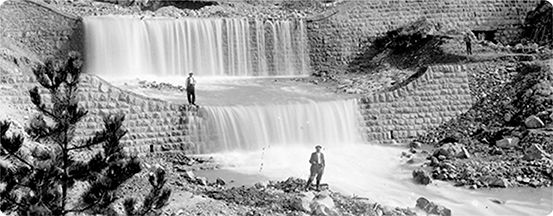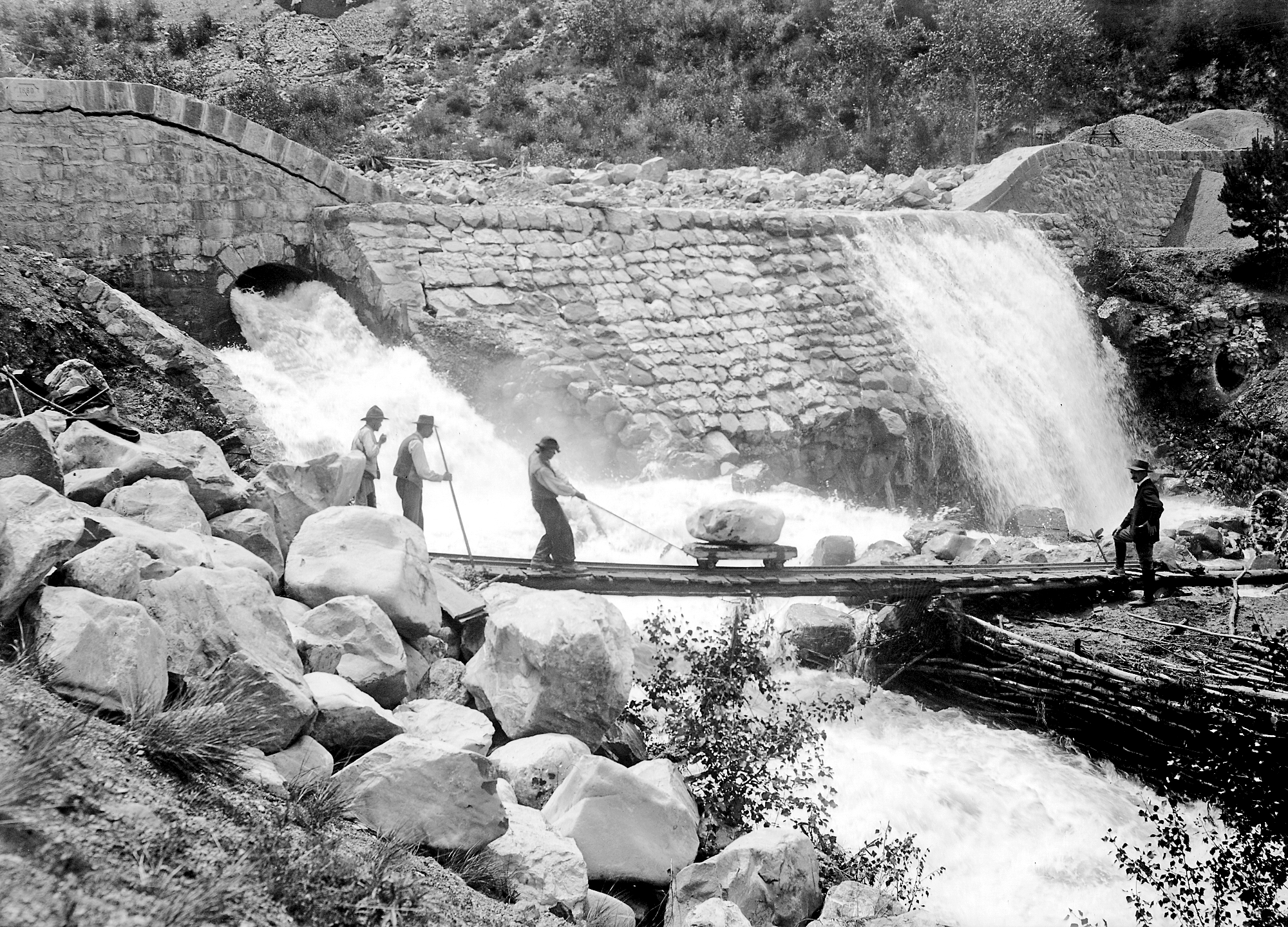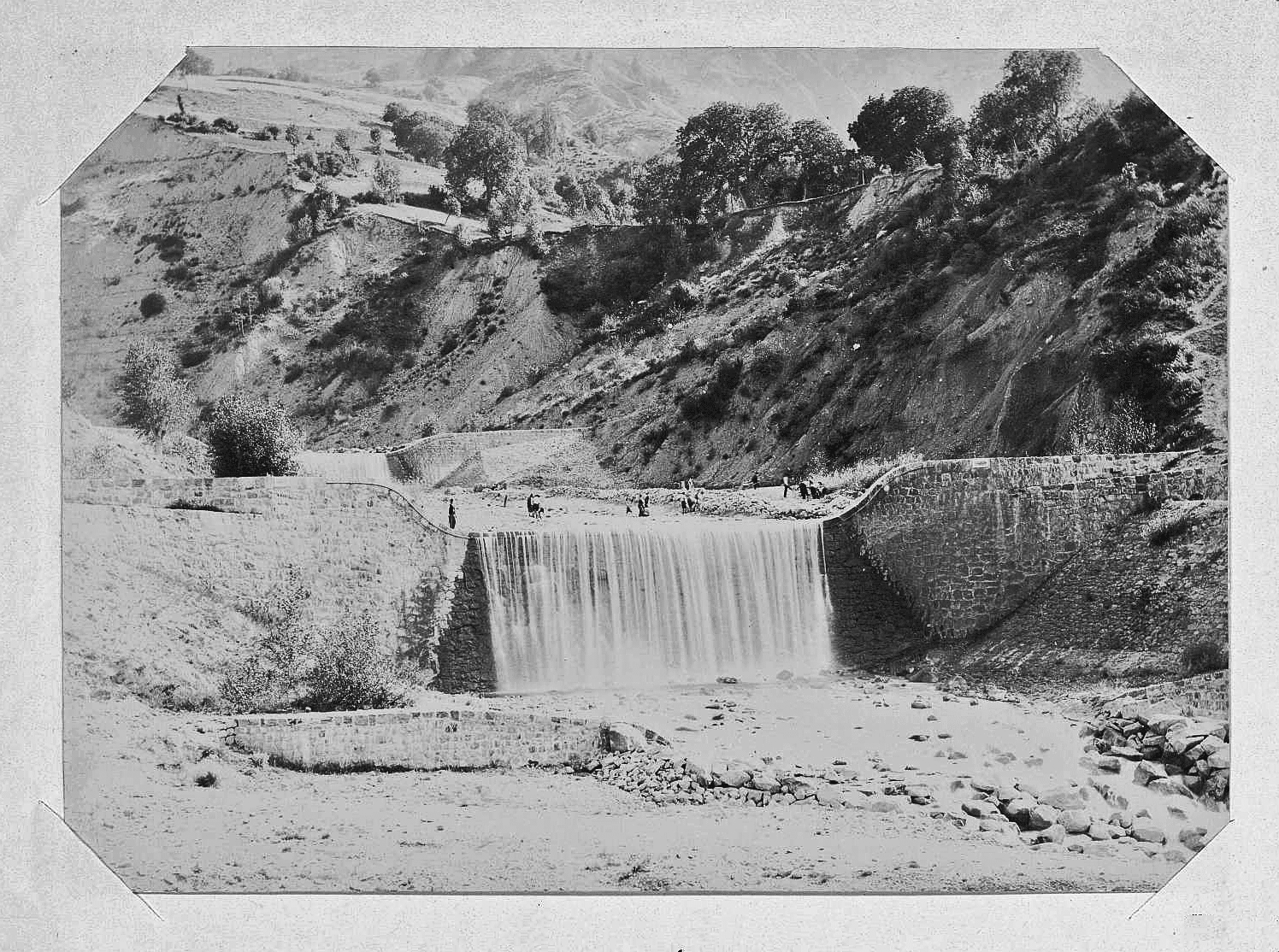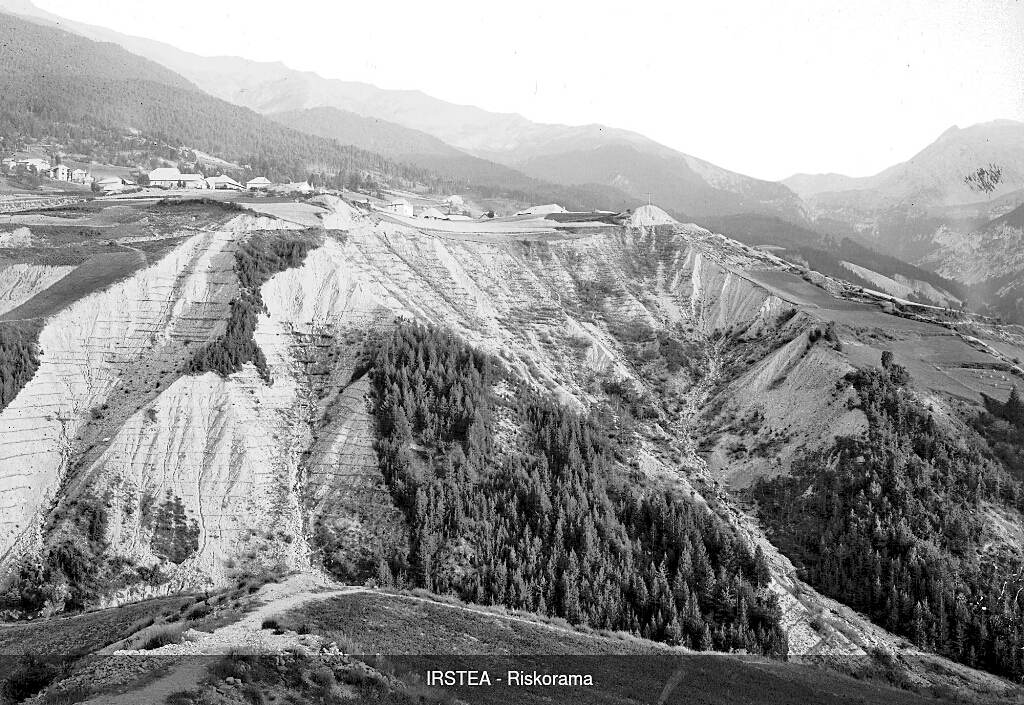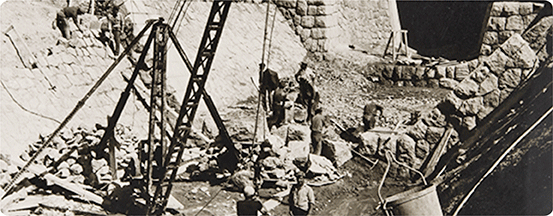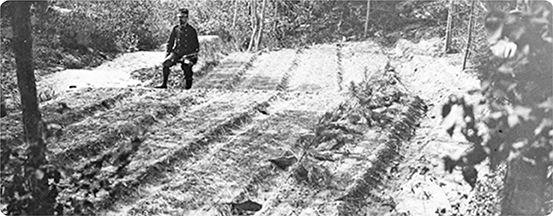The Vachères torrent, a pioneering management experiment
An experimental site and a technical, ecological and biological innovation: it is at this torrent in the Hautes Alpes that foresters from the mountain land restoration service undertake the first works in France aimed at curbing erosion and containing flooding.

In the 19th century, the Vachères torrent was the benchmark torrent in the Embrunais region, "one of the worst in the Alps" due to the size of its catchment area and its alluvial cone, posing a constant threat. Located in the municipalities of Baratier, Saint-Sauveur and Les Orres, this torrent was a sort of pilot site; it is a good illustration of the difficulties encountered by the authorities in the face of hostility and resistance on the part of the population.
In fact, as soon as it is promulgated in 1827, the Forestry Code make communal forests subject to the forestry regime, prohibiting access by goats and sheep, which are obstacles to regeneration and reforestation, with any infringement punishable by a fine.
In 1860, the first law "on mountain reforestation" further increases the pressure.
A decree is all that is needed to establish the public utility of reforestation, which the administration deems necessary for a sound ecological management of the land. Given formal notice to carry out the work, landowners are entitled to subsidies, but if they refuse or are unable to do so, they are expropriated without compensation.
The forester, often from other parts of France, represents the authority of the centralising and authoritarian state. It is against this stormy backdrop that the first plantations commence in 1864, provoking a revolt forcing the workers to abandon the site.
It is only in 1868 that work can resume, that year having been disastrous for the harvests, with the inhabitants hiring themselves out for wages and actively participating in the work, lasting until 1914.
Three hundred people planted thousands of trees, dug canals, built back berms, weirs and dams.
The whole project will have taken almost 50 years to complete.
Bibliographic source
Hervé Gasdon, Les sentiers de montagne des forestiers, itinérance entre la Durance et l’Ubaye. Ed. Transhumances 2019, 171 p.
Text written by Catherine Tailleux (INRAE-DipSO)
Thanks to Hervé Gasdon, retired forester from ONF-RTM, for his proofreading.
How to cite: Focus Agate: The Vachères torrent, a pioneering management experiment, Catherine Tailleux (INRAE-DipSO), november 2023. https://agate.inrae.fr/agate/fr/content/focus
Illustrations
The banner was made from a photo taken by mountain land restoration services, kept in the departemental archives of Hautes-Alpes: Torrent de Vachères, barrages n° 7, 8 et 9 (n° 21 Fi 184).

The thumbnail was made from a photo by mountain land restoration services, kept in the departemental archives of Hautes-Alpes : Torrent de Vachères - seuil n°2 et barrage n°5 - 1913 - (n° 21 Fi 806).
